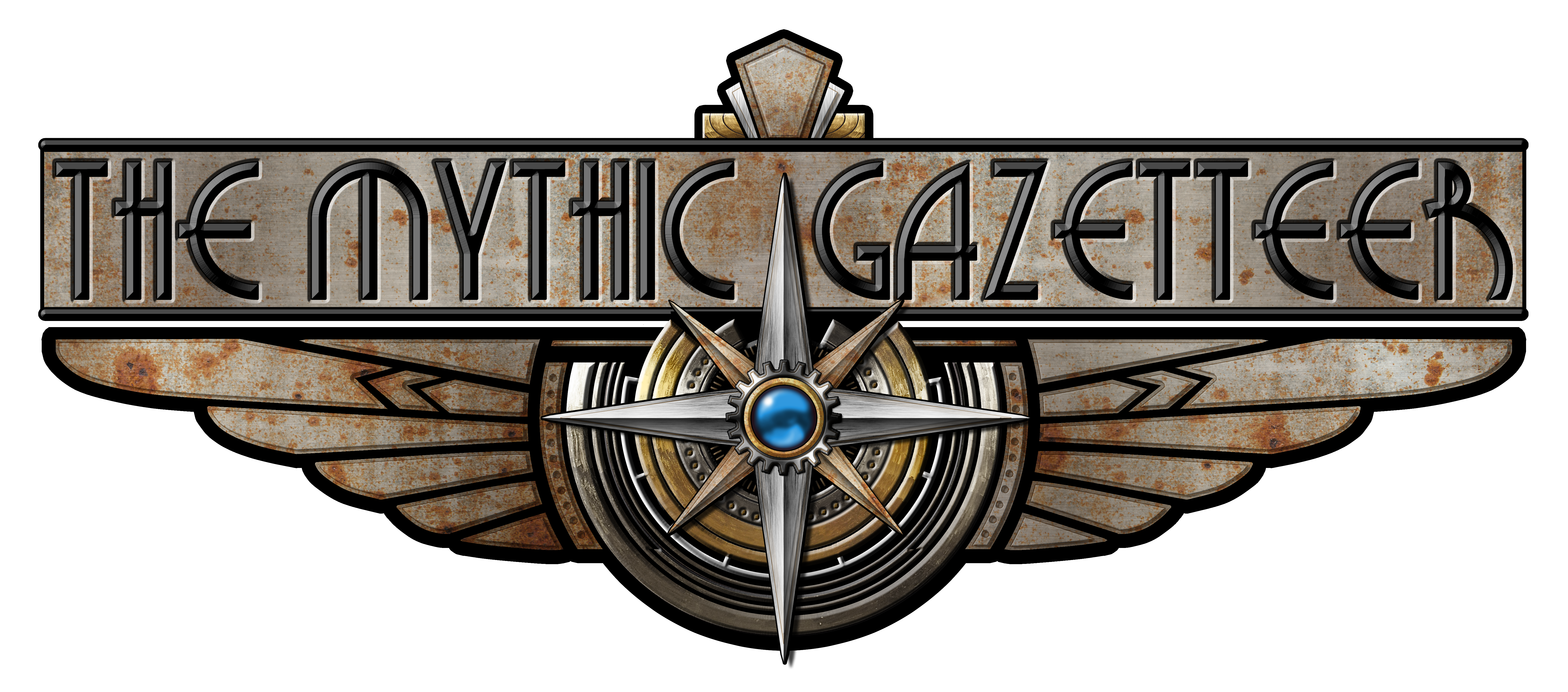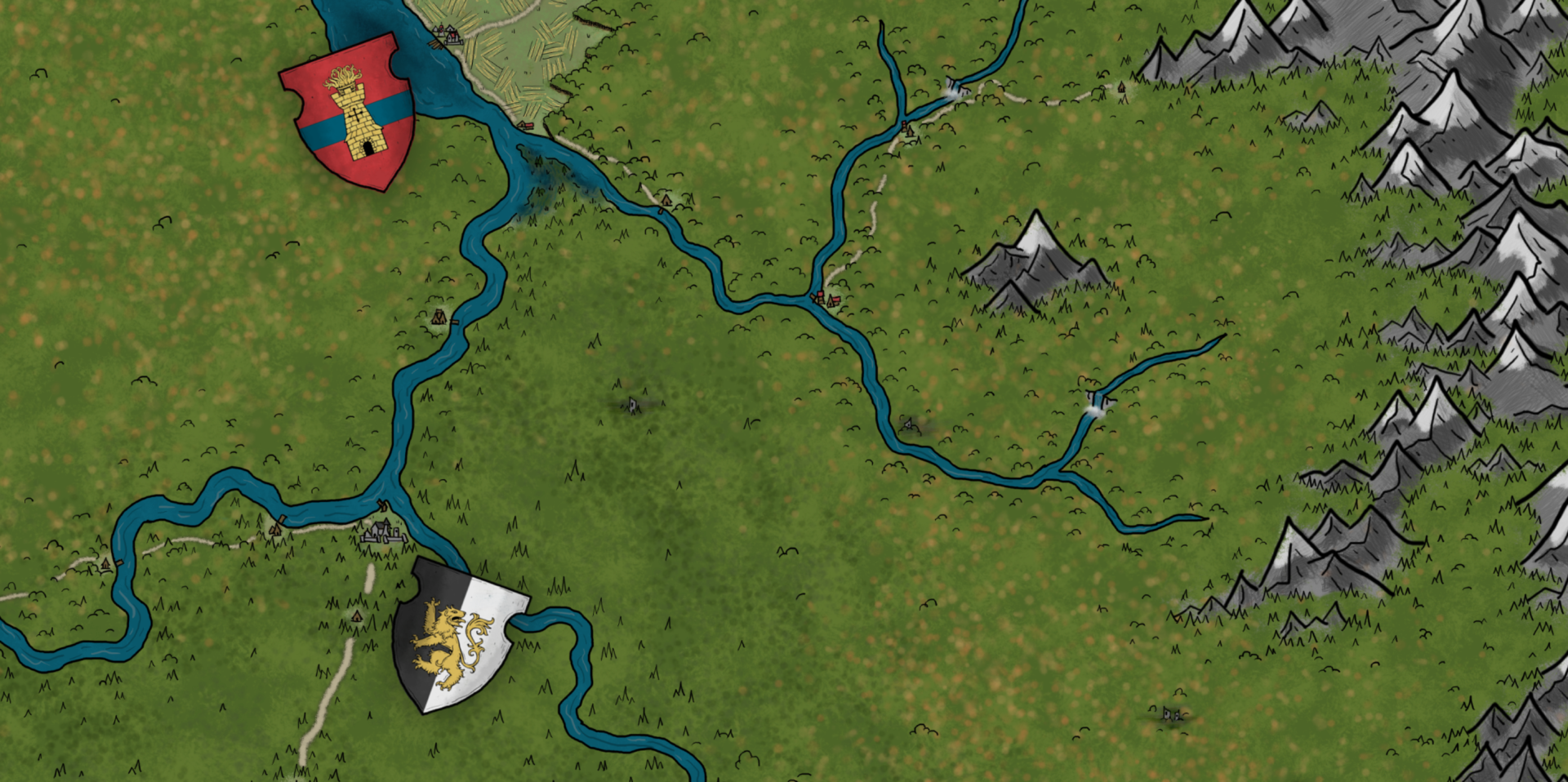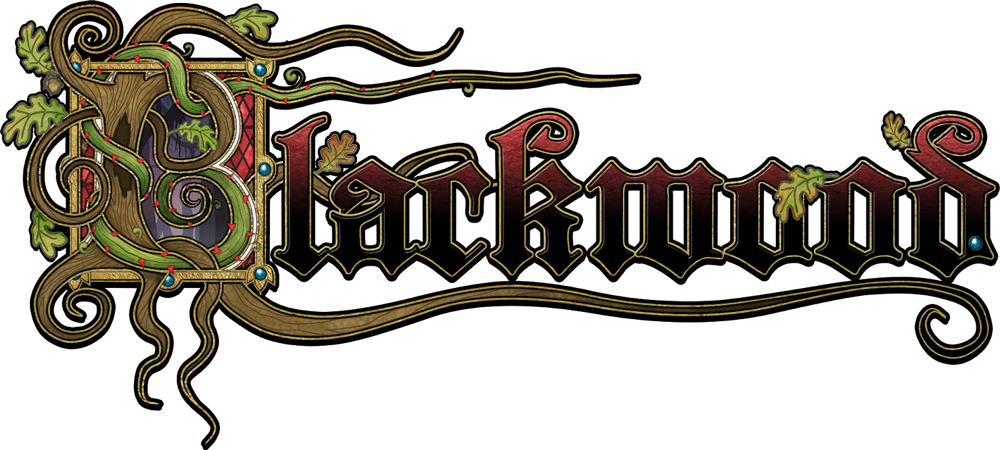The Blackwood is Grimm’s Tales directed by Zhang Yimou. You are errants, searching the forest for a way to save the settled people of the Elder Kingdom despite a landscape of deadly beauty and a crumbling ruling class. Visually, I’m inspired by games like The Witcher. Tonally, I want to capture the bright but surprisingly macabre world of folk tales. Realistically, I know a lot of players gather around the table to drink beer and laugh with each other, so I want to leave room for that kind of gaming.
The first seeds for this setting were planted when I moved from southern Missouri to Chicago in 2011. I wasn’t particularly attached to my home but I was really leaving it for the first time. It made me think about where I came from: the mountains and forests of the Ozarks, the farmlands of Missouri and Kansas, and further back my ancestral homelands of Sweden and Germany. I wanted to make a world that was a tribute to that lineage. I read through Grimm’s Tales to take in the stories of my ancestors. I looked through US history to better understand our geography and politics. I learned about my family coming to the states (before the Revolution on one side and in the early 20th century on the other). I read books on ecology and geology to understand the mechanisms at work behind the natural beauty of where I grew up.
As I was doing all this research, the ideas I came up with seemed stale. “Medieval fantasy’s been done to death” I kept saying to myself. Hadn’t this old dog of a genre learned all the tricks it could handle? Focusing on folklore rather than successful fantasy settings of the past was a solid start but it wasn’t unique enough on its own. I looked to some of my favorite media, kung fu movies and TV shows, to flesh out the culture and combat of the setting.
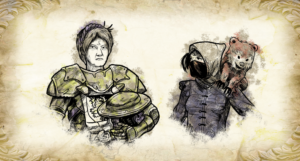
Enter Wuxia
I love a good kung fu movie. Just like tabletop games, everything from low-budget drek like The Story of Ricky to grand, sweeping epics like Red Cliff has a place in my heart. It helps that I’ve always been fascinated by martial arts but I also appreciate the shared world in which these stories are told. A common theme is the jianghu: a world parallel to the civilized world, where heroes and outlaws live according to their own principles, and fight for those principles with the power of martial arts.
This jianghu (translated literally as “lakes and rivers”) usually exists because government is corrupt. Those in authority oppress the common people, punishing anyone who tries to stop them. These people–sometimes bad and sometimes good–usually end up rebelling against the government and living outside its laws.
Sometimes, as in the classic Water Margin, these people band together in the wilderness to make a life for themselves. Other times (like in the excellent movie Iron Monkey), these figures hide in plain sight to help the needy, like an Asian Robin Hood. But before you even consider the characters in the story, the theme of government corruption is a timely issue in the real world, and a land of wandering heroes fits perfectly into the general conceit of a roleplaying game. Plus, who doesn’t like to jump around a battlefield, deflect a rain of arrows, and engage in ornate duels?
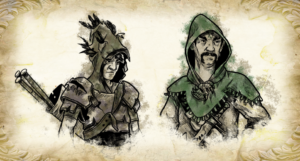
A Land of Lakes and Rivers
With all this in mind, I started working on the Blackwood at the Giant in the Playground forums in 2012 (you can see that early work here). It is a peaceful kingdom in the midst of a vast and dangerous forest. Only recently connected to the outside world, the kingdom hasn’t needed outside help thanks to the wisdom of the seemingly-immortal Elder King. This is not a land of wide open spaces or standing armies. This is twisting forest roads, isolated villages and cities, brave mercenary bands and prowling creatures lost in twilight.
The settled folk are craftsmen, laborers and nobles. They live their lives within the safety of hedges, and travel to other towns and cities but rarely. They are ruled by the Elder King’s law, known simply as the Way, which teaches them the value of community and the importance of wise counsel. The Way is also the keeper of many secrets, from the cultivation of the land to the working of magic.
You play an errant, perhaps a stalwart warrior, tricky rogue, a student of magical arts, or even an enterprising merchant or crafty hunter. For your own reasons, you have answered the Call of Errantry to forsake the settled life in pursuit of glory, duty and vengeance. Errants walk the Way’s Margin, welcome in the settled world but liberated from some of its laws.
You alone are free to wander between the cities and the wilderness, to find lost treasures and bring justice–real or imagined, sometimes–to those beyond the law’s reach. You contend with beasts, desperate outlaws, wild pagans, and sinister elves to achieve whatever ends you see fit. But do not stray too far from the Way of virtue. Anyone can be outlawed under the King’s Ban, and that way lies death.
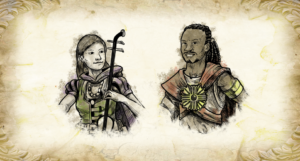
The Work So Far
The earliest plan for the Blackwood was to make it totally system neutral. I soon realized gaming in the setting was the best way to test out my ideas, so I had to find a simple system I could run without too much thought. Warrior, Rogue, and Mage from Stargazer Games turned out to be just the fun, free, rules-light game I needed to keep focus on the worldbuilding. There were a couple play-by-post games on Giant in the Playground forums, which are a great way to practice writing. I also wanted to see how the world could be communicated live, so I ran a playtest with a few of my friends here in Chicago.
These games taught me that fantasy is really different from folklore, and finding the balance between folklore and kung fu would be a challenge. From the wuxia genre, I didn’t want much more than high-flying action and a historic dystopia. It seemed best to use the system’s mechanics to capture the former, while making the latter a central part of the world and its accompanying fluff. I also knew I wanted to try out the online gaming community, which meant I’d need to find a more popular game than the OSR and indie games I’d enjoyed.
While on the lookout for a game that could handle a lot of action, I heard about Savage Worlds. It had everything I was hoping for–frantic action, a lean ruleset, a community–and a few things I didn’t know I wanted: a pulpy feel and a lethality reminiscent of old school games.
I took the switch as a chance to try out Ben Robbins’ advice about rewriting your game from memory, which turned out to be a huge help. It forced me to go back to the core of the setting–passion-fueled adventurers wandering between a dangerous magical realm and a culture in decline. It also jumpstarted my interest in learning about this new system, which is how I found out about a ton of awesome podcasts, people, and resources for mastering Savage Worlds. The forest had been clear cut but it was growing back up beautifully.
The Work to Come
At this point, I’ve got a reference document currently being tested by two groups of playtesters. I’m nearly ready to present a list of pregenerated character archetypes, and the first two of many one sheet adventures. My goal is to submit for a Pinnacle license in the next month, and to take this project to Kickstarter in Spring 2017.
My live group doesn’t record but the other you can watch on my YouTube channel. The final episode of our 13-session campaign debuts tonight at 7:30pm CST! I’ll be running plenty of one shots in the next few months as I finish writing the setting. Stay tuned for updates scattered among my usual ramblings.
So what do you think? Does the Blackwood sound like the kind of place you’d like to adventure with your friends? Which questions did I leave unanswered? Let me know in the comments below.
